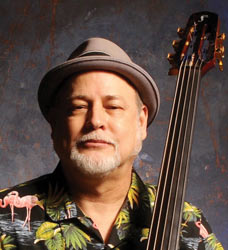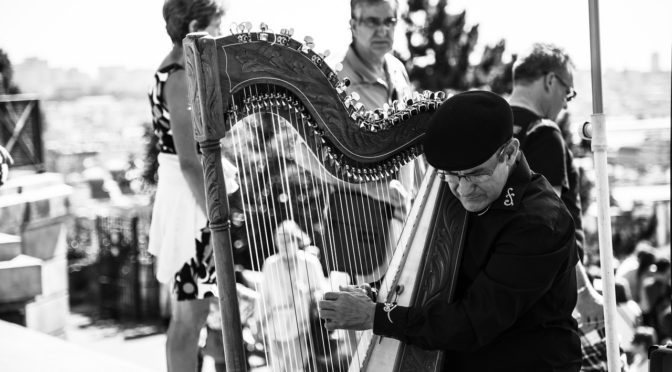by Dave Pomeroy, AFM International Executive Board Member and President of Local 257 (Nashville, TN)
 In these complex times, it is more important than ever for all musicians and concerned citizens to remain engaged in our communities—and if possible, take things up a notch. We live in a world where so many people are hiding behind cell phones and iPads that face-to-face communication is becoming a lost art. If you are on social media at all, it’s hard not to notice that people will say things to each other on that platform that they would never say to anyone in person. This disconnect is a real problem in our society, and as technology marches on, it is up to those of us who care about each other to let voices of reason be heard and not drowned out by the background noise that surrounds us every day. What can we do to tear down this imaginary wall between us?
In these complex times, it is more important than ever for all musicians and concerned citizens to remain engaged in our communities—and if possible, take things up a notch. We live in a world where so many people are hiding behind cell phones and iPads that face-to-face communication is becoming a lost art. If you are on social media at all, it’s hard not to notice that people will say things to each other on that platform that they would never say to anyone in person. This disconnect is a real problem in our society, and as technology marches on, it is up to those of us who care about each other to let voices of reason be heard and not drowned out by the background noise that surrounds us every day. What can we do to tear down this imaginary wall between us?
Let There Be Music
There was a time when music was the only entertainment option available. Today there is a glut of “entertainment” options, yet music survives as the universal language and a positive force in the universe. It has the power to unite, heal, and bring out the deepest and most real emotions that we have as humans. The self-expression and emotional release that musicians experience through playing is one of the things that is easy to take for granted, but its net effect can be bigger than we realize. Music is a subtle but effective way to get a message across that would get lost if it was just another rant on Facebook. Great music brings people together in many different ways, all around the world. The result is enjoyment and release, and the realization that we may have more in common than we realize. Many AFM members are also teachers and mentors, and are passing along the precious gift of music to the next generation.
It Takes a Village
In my time as president of AFM Local 257 (Nashville, TN), we have made an effort to be proactive members of our city and community in every way possible. For example, our rehearsal hall is not only used by members who are rehearsing, auditioning, or collaborating, it is the setting for a wide variety of activities. We hold our quarterly member meetings there, a weekly AA meeting, a monthly songwriter/musician jam, music therapy workshops for military veterans, networking events, and much more.
We recently hosted a “Musicians’ Guide to Buying a Home” seminar that was very much appreciated by our members who are beginning that process. We have hosted local neighborhood association meetings and have had memorial services and weddings in that space as well. We also open up our boardroom for our members who need to take a business meeting, write a song, or whatever helps them take care of their business.
We see our building as a community space. We are not in an ivory tower; our building is a living, breathing center of creativity and common goals that demonstrates what we do and what we stand for.
Solidarity Is Trending
I spend a lot of time and energy debunking the many myths of what a union does and how we do it. The many “thug” jokes I have endured are almost funny, but not really. That stereotype is not who we are or how we do things. Although an arts union has some unique qualities, we have much more in common with other labor unions than we have differences. It’s all about respect for workers. After many years of little or no interaction with local labor organizations and the AFL-CIO, we have increased our participation and involvement with our fellow unions. They are always glad to see us, and it gives us valuable perspective to learn more about what the labor movement is all about. Even though you may love what you do as a musician, you still deserve to be paid appropriately for what you do. There is no shame in standing up for yourself, in fact it is a necessary step in creating solidarity among our members.
There is no other organization looking out for professional musicians. It is an honor to serve and protect our members from what can be a very unscrupulous business. The AFM has your back and we are your first—and often last—line of defense. Let us help you help yourself. That’s what we are here for.



